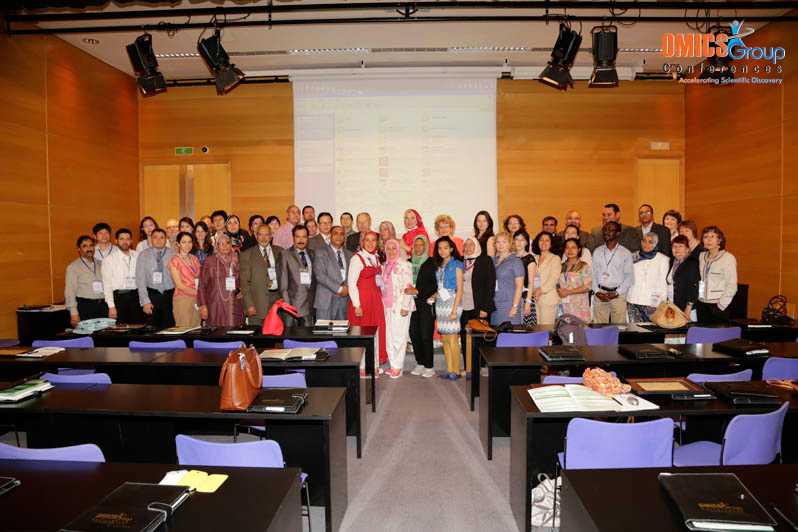
Malika Alili
Ecole Normale Superieure, Algeria
Title: Plasmid copy number determination in B. subtilis dnaC30 bearing (p5.2) plasmid
Biography
Biography: Malika Alili
Abstract
Plasmid p5.2 that carry the complete alkaline protease gene was used to transform Bacillus subtilis dnaC30 ts mutant cells. This host behaves like wild type cells at permissive temperature (370C), while at non permissive (46-480C) the replication of the chromosomal DNA is ceased. The recombinant cells permit the replication of the plasmid p5.2 at non permissive temperatures, but not the chromosomal DNA. The plasmid copy number assay provides important information on several aspects such as gene dosage, gene regulation, and protein expression. The plasmid copy number of (p5.2) plasmid was determined. The procedure included purification of the total bacterial DNA (genomic and plasmid DNA) followed by agarose gel electrophoresis then quantitation of DNA by Total lab software. Total DNA was extracted from B. subtilis dnaC30 bearing (p5.2) plasmid when grown at 48°C and 37°C for 0, 2, 4, 6, 8 and 24 hours. Two bands were obtained per lane, genomic DNA (top) and plasmid DNA (bottom). Each band intensity was quantified by measuring the area under peaks using Total lab software. Plasmid copy number (PCN) results indicated that, the (p5.2) plasmid in bacterial cells when grown at 48°C, was increased 4 fold compared to that of the same plasmid when B. subtilis dnaC30 cells were grown at 37°C. Additionally, after 24 hours of incubation, the PCN and alkaline protease activity were significantly lower than obtained for bacterial cells grown at 48°C. It was observed that the PCN was increased as the CFU was decreased and consequently the alkaline protease activity increased. This could be due to the fact that, in dnaC30 chromosomal DNA synthesis was greatly decreased compared to the wild type, but CCCDNA synthesis was comparable to or exceeded that in the wild type and an enrichment of CCC over chromosomal DNA occurs at the non-permissive temperature.

